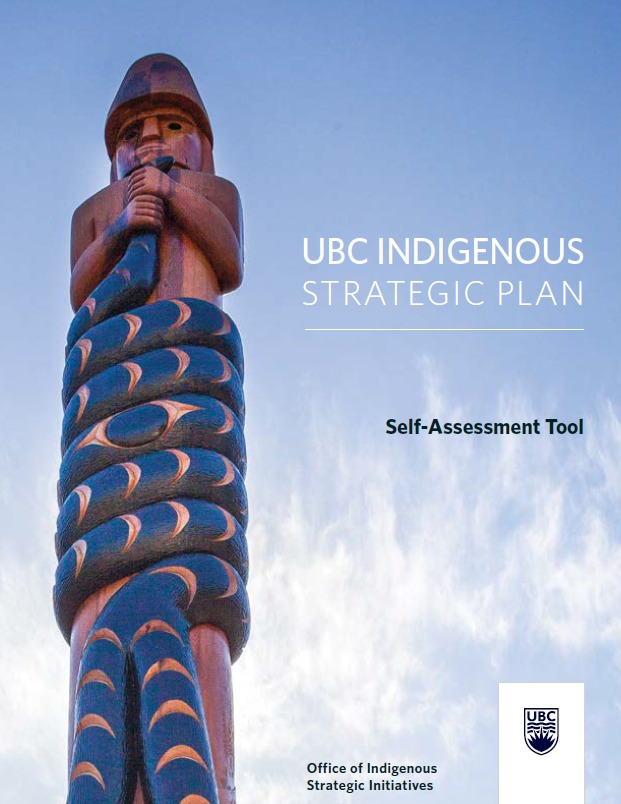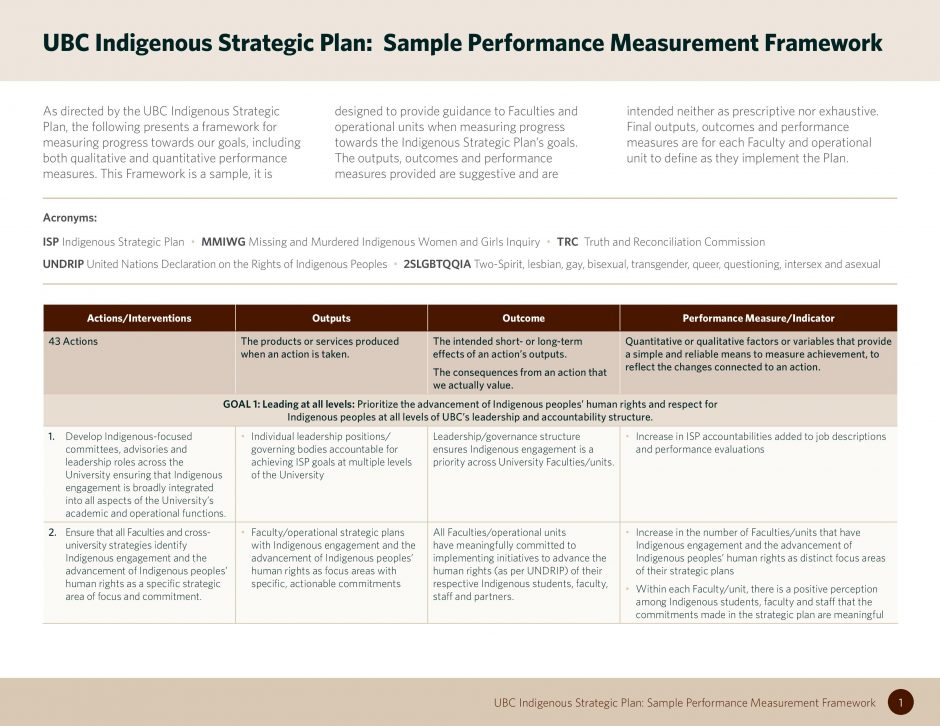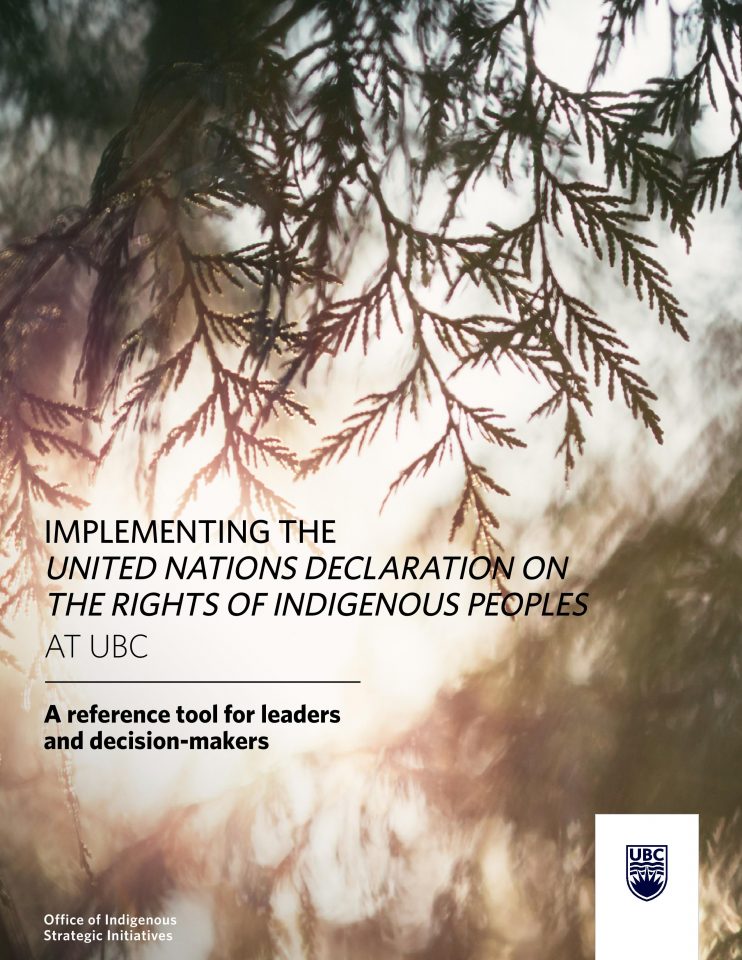Implementation Tools
and Resources
Implementing Indigenous Peoples’ Human Rights
To help guide the implementation of the Indigenous Strategic Plan (ISP), the Office of Indigenous Strategic Initiatives (OISI) developed a set of tools which units use to help situate themselves in relation to Indigenous engagement and to start aligning their work with the Plan.
This video provides an overview on the history, use and facilitation of the ISP Implementation Toolkit.
Steps to action:
ISP Implementation Toolkit
Step 1: The ISP Self-Assessment Tool
The ISP Self-Assessment Tool provides units with the opportunity to reflect and discuss their role at UBC within the context of Indigenous engagement. Completing this tool will help to situate units in relation to ISP goals and actions and will help answer questions such as:
- What are we currently doing to advance the goals and actions of the ISP?
- What can we be doing more of?
- What are we doing that we can change?
- What can we start doing?

Step 2: The Intent to Action Tool
The Intent to Action Tool provides a structure for units to review the Plan, identify the goals and actions that are relevant to your unit, and assess how you can contribute to implementing your goals through some specific selected activities. This tool is made up of a Facilitator’s Guide and Workshop Slides.

Step 3: Performance Measurement Framework
As directed by the UBC Indigenous Strategic Plan, the Performance Measurement Framework is used to measure progress towards ISP goals, including both qualitative and quantitative performance measures. This framework is a sample and is designed to provide guidance to Faculties and operational units when measuring progress towards the Indigenous Strategic Plan’s goals.

Implementing UNDRIP at UBC
Implementing UNDRIP at UBC provides the UBC community with a broad and multi-dimensional lens to contextualize and uphold the commitments UBC has made to promote the principles of UNDRIP and Indigenous peoples’ human rights.

We honour, celebrate and thank the xʷməθkʷəy̓ əm (Musqueam) and Syilx Okanagan peoples on whose territories the main campuses of the University of British Columbia have the privilege to be situated.


